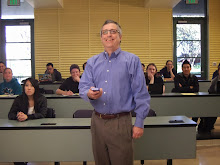I strongly believe (at least for very early stage technology ventures) that you will get diminishing returns and arguably negative returns once you get past an initial threshold of team, product, market and financial diligence. There are so many unknowns at this stage and the only known is that the business model is going to change at least once, or in the current most overused term in the Silicon Valley, there will be a "pivot".
It turns out the statistics related to returns were from an oft cited study on returns to investors in angel groups sponsored by the Angel Capital Association with research by Robert Wiltbank at Willamette University. The research did show that higher returns were earned by investments where more diligence was done. However, the bar was set very low at 20 hours as the determinant whether high or low diligence was performed.

The average number of angels per investment was 6, which pegs the average time at just over three hours per individual. This could include 2 short meetings and a couple of phone calls. Not exactly extensive diligence. This feels about right for an early stage angel investment and no reason that the process needs to drag out for months and even weeks. The key to getting deals done and investing in the best deals is the ability to make quick decisions and this is where angel groups have deservedly earned a bad rap.
This brings me back to a post a wrote about a year ago titled "Would a Dart Board Provide Better Returns?" I wrote this right after I had read about a new fund, Right Side Capital, that planned on investing in 100 companies a year without ever meeting the team or vetting the idea. Instead, they are going to rely on an algorithm to select companies. The formula will be based on the founders' experience, schools they attended and other background information to gauge the likelihood of success. So, after my initial reaction of "Are they friggin serious?", I became intrigued by what they were doing and spent several hours with the team and looking into their research. If you want to skip to the end of the story, I ended up becoming an adviser and investing in the management company.
So, what ended up causing this about face? Part of it was the out of the box thinking and turning the typical venture investment thesis upside down. You can find a collection of their research on their site and some compelling analysis by RCSM partner Kevin Dick on his Emergent Fool Blog, "You Can't Pick Winners at the Seed Stage" Through their research, they came to two Big Realizations:
- People matter ideas do not - It is impossible to try and pick the best ideas and if you do, you will invariably screen out revolutionary ideas as crazy
- The market's risk can be mitigated without reducing the return - This is really basic diversification theory on steroids, that instead or requiring a basket of 20 public equities as you would in a typical asset allocation strategy, in the seed stage you need hundreds of investments, which will smooth the risk curve
Kevin quotes early and often from the Black Swan by Nassim Nicholas Taleb
Black Swan Theory, according to Taleb, almost all major discoveries and undirected and unpredictable. In the context of angel investing, the best way to play is to diversify across a broad spectrum of technologies and geographies. Since it is extremely difficult to predict, this will give the best chance of hitting the winners.
Not totally surprising, some of the early backers of RCSM are professional poker players, who obviously know a bit about playing the odds. I'm hoping this roll of the dice comes up 7's.
